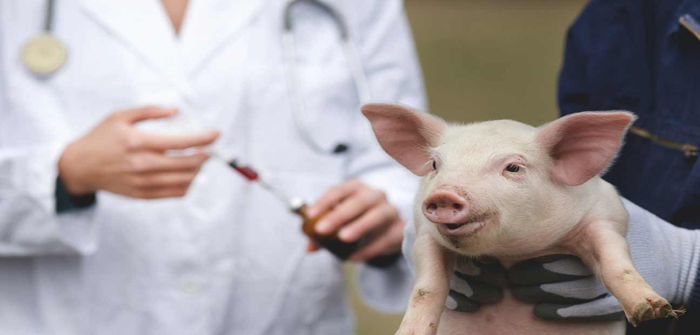Researchers in the UK, led by The Pirbright Institute, are to receive £3.1 million of investment to produce a more affordable and effective vaccine to protect animals against foot-and-mouth disease (FMD).
Foot-and-mouth disease is endemic in large parts of Africa, South America, the Middle East and Asia and, globally, is the most economically important infectious disease of livestock, affecting cattle, pigs, sheep and goats and other cloven-footed animals.
The funding has been awarded by Wellcome to Pirbright and partners to advance commercial production of a new, low-cost vaccine to protect livestock against several serotypes of foot-and-mouth disease virus (FMDV). Vaccine producer MSD Animal Health is providing support to ensure the vaccine is as affordable as possible.
Previous research, also funded by Wellcome, carried out by Pirbright and its collaborators has already demonstrated that vaccines derived from virus-like particle (VLP) copies of the foot-and-mouth disease virus propagated in insect cells were effective in protecting cattle against four serotypes of the disease.
The new research aims to translate these findings into a commercially produced vaccine that is effective against multiple strains of FMDV that will transform the lives of the livestock farmers in the poorest regions of the world.
Countries where the disease is endemic suffer a huge impact on their national and international trade, economic and food security and devastating effects on animal and human health. There is currently a massive shortfall in the availability of FMD vaccines, most strikingly in Africa and there is a desperate need for a new affordable vaccine.
Dr Bryan Charleston, a director at The Pirbright Institute, said: “Whilst our initial research has provided proof of concept of these virus-like particles for four different strains, this funding will allow us to answer the remaining product development challenges and further improve the stability of VLPs.
“This represents the final step in being able to bring an affordable and effective FMD vaccine to the market that does not require special facilities to produce, is less reliant on a cold chain, and so will transform the livelihood of those farmers in the poorest areas of the world who depend on their livestock for food and economic security.”




